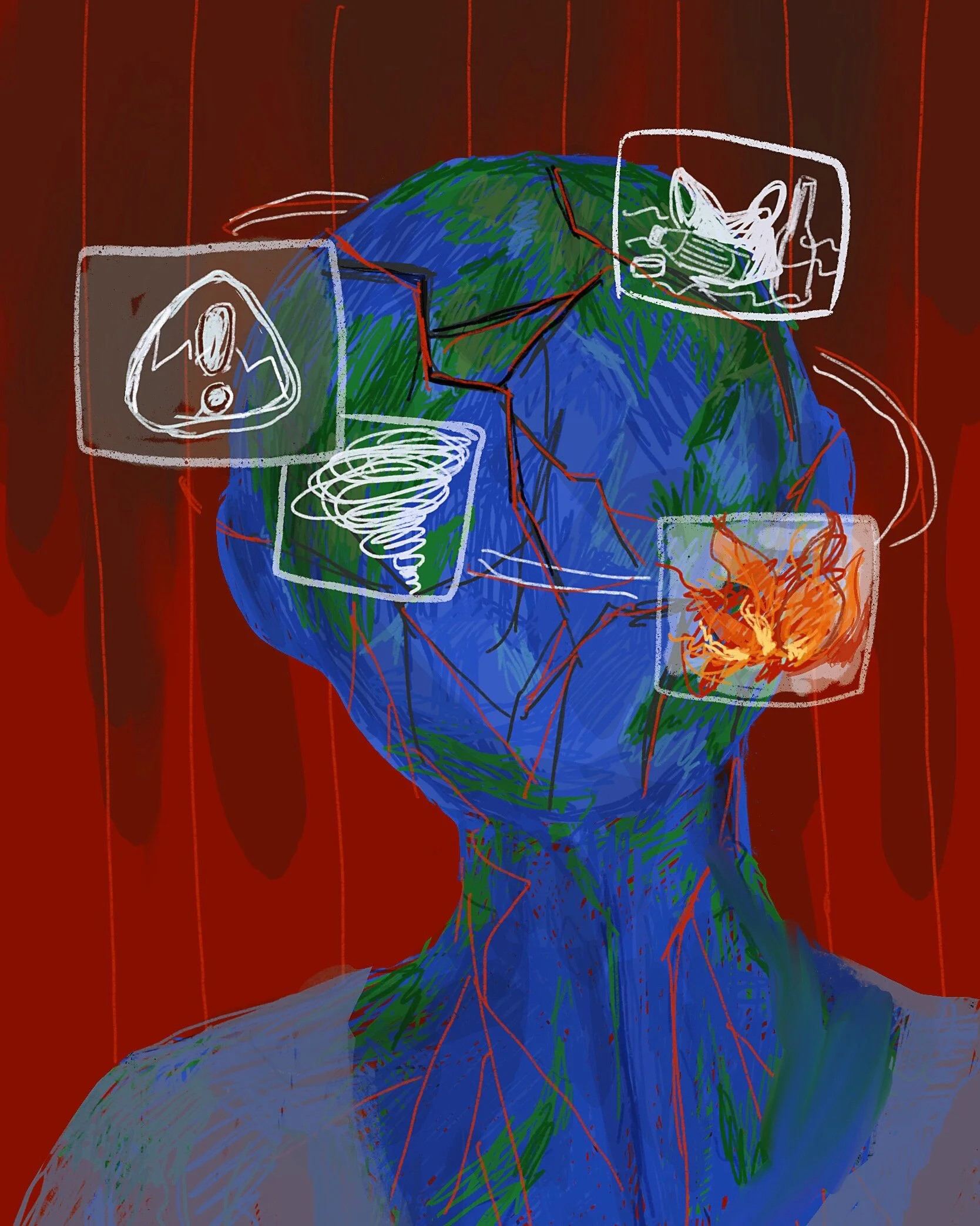After its popularization in the 1990s by oil and gas company BP in a $250 million advertising campaign, the term “carbon footprint” has been heavily discussed, particularly around Earth Day. In 2004, as a response to BP’s campaign, the first carbon footprint calculator was invented. Since then, the Environmental Protection Agency and others have released other carbon footprint calculators, promoting individual responsibility in reducing personal carbon footprints.
Weekly Climate News
April 15, 2021
Non-fungible tokens, a new blockchain technology, have been found to have a large environmental impact.
Many cyclists are unhappy about a new rule change that ends the tradition of tossing water bottles to fans during races.
The Muldrow Glacier in Alaska is moving up to 90 feet a day, 100 times faster than its normal pace.
A cyclone hit Indonesia, leaving over 160 people dead from flash floods and landslides. Many are claiming the Indonesian government’s recent rollback of environmental protections worsened the crisis.
Japan’s recent approval of treated radioactive water from the Fukushima nuclear plant into the Pacific Ocean has been met with fierce opposition.
Despite a slow economy resulting from COVID-19, greenhouse gases are currently on the rise.
The proposal for the construction of a controversial biomass power plant in Springfield, Massachusetts, was revoked by the state’s Department of Environmental Protection.
CACTO claims to be the first “carbon negative fashion company in the Americas” because it removes more atmospheric carbon than it produces through the manufacturing of its cactus leather products.
Waves are a possible renewable energy source
Wave energy recently reached a new milestone in the United States: The first testing site for large-scale electricity production has been approved in the country. The site, called PacWave South, is located off the Oregon coast and will be used by various companies to determine the viability of their wave energy converters (WEC). The goal of the site is to determine which wave energy technologies can be adapted for full-scale commercial use.
Google Maps will place drivers on energy efficient routes
Google announced on March 30 that starting later this year, the Google Maps app will direct drivers on routes estimated to generate the lowest carbon emissions. Google said it would factor in emissions data based on different types of slopes and inclines using its own Street View feature combined with aerial and satellite imagery.
Artificial light pollution disrupts insect and animal behaviors
The current decline of insect populations around the world could put ecosystems at risk of collapsing. Insects are responsible for the biological foundation of all terrestrial ecosystems, pollinating plants, dispersing seeds, maintaining soil structure and fertility, controlling the populations of other organisms and providing a food source for other animals. For example, fireflies are important to ecosystems, as their larvae feed on pests that can destroy the habitat of other organisms, while grasshoppers benefit ecosystems by facilitating cycles of decomposition and regrowth.
Climate change impacts well-being through psychological trauma
Climate change reverberates throughout ecosystems as well as the human body. The direct outcomes of climate change produce physical harm to individuals through natural disasters and the creation of inhospitable environments while also impacting individuals and communities’ well-being through a wide range of mental health effects. As the planet continues to warm, we become increasingly exposed to psychological trauma connected to the destruction of the natural world.
Weekly Climate News
April 8, 2021
Flooding in Australia has forced over 20,000 people to evacuate and over 150 schools to close down.
The journal Geophysical Research Letters published a new study that shows summer in the Northern Hemisphere is lengthening. As a result of climate change, by the end of the century, summer could extend by nearly six months.
Pope Francis made an appeal for humanity to face climate change by quoting Shakespeare, writing, “To see or not to see, that is the question.”
Human activity is currently responsible for degrading two-thirds of Earth’s tropical rain forests. Read more about it here.
A NASA study has confirmed that human activities are shifting Earth’s energy budget, as more energy from the sun is being trapped than can escape back into space.
A recent experiment found that coffee pulp, left over from the coffee making process, can aid in the regrowth of forests.
The Biden administration announced an expansive offshore wind plan that would install enough wind turbines on the East Coast to power 10 million American homes.
How is climate change affecting major league baseball? Read this article to find out.
‘Our Voices, Our Platforms’: A Green New Deal virtual town hall with Senator Edward Markey and Carmen Yulín Cruz
Massachusetts Senator Edward Markey and Carmen Yulín Cruz, former mayor of San Juan, Puerto Rico, and current Harriet L. Weissman and Paul M. Weissman distinguished fellow in leadership at Mount Holyoke College, met in conversation for a virtual webinar-style town hall on April 7 at 11:30 a.m. EDT. The town hall was the second of the “Our Voices, Our Platforms” series, created through a collaboration of the Weissman Center for Leadership and the Miller Worley Center for the Environment with co-sponsored support from the McCulloch Center for Global Initiatives and the Division of Student Life. The event included questions from current Mount Holyoke College students.





